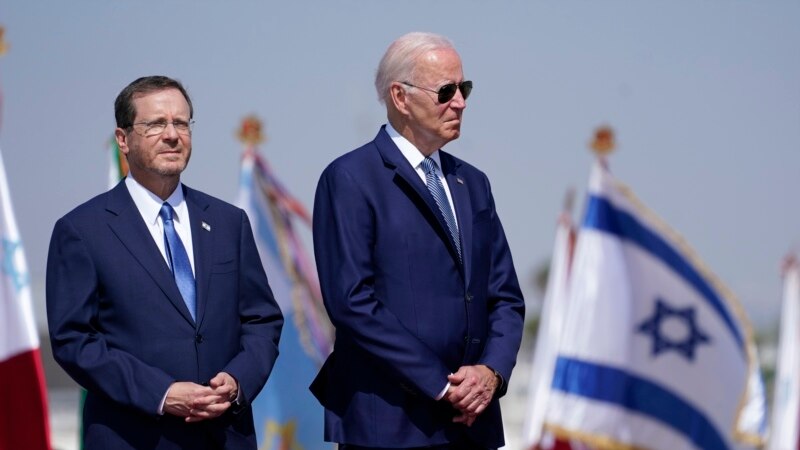President Joe Biden arrived Wednesday in Israel, part of a broader Middle East visit with stops in the West Bank and Saudi Arabia.
He received a formal welcome at Tel Aviv’s Ben Gurion airport, where he spoke of the “deep bone” bond between the U.S. and Israel.
Biden expressed support for a two-state solution for Israel and the Palestinians and said the U.S. would deepen Israel’s integration into the Middle East.
During his visit to Israel, Biden will meet caretaker Prime Minister Yair Lapid and opposition leader Benjamin Netanyahu to discuss Israel’s security amid a resurgent Iran, including the integration of its air defense capabilities with Gulf Arab countries.
In the West Bank, Biden will seek to reset relations with the Palestinian Authority after the Trump administration slashed aid and closed the American consulate in Jerusalem that served as the U.S. mission to the Palestinians.
Later, Biden will attend the GCC+3 Summit in Jeddah, Saudi Arabia with members of the Gulf Cooperation Council (Bahrain, Kuwait, Oman, Qatar, Saudi Arabia, United Arab Emirates) and Egypt, Iraq and Jordan, where he will lay out his vision for U.S. engagement in the region.
He is set to meet King Salman and Crown Prince Mohammed Bin Salman, to repair ties with Saudi Arabia — a country he once called a pariah.
Complicated trip
In addition to pushing for Israel’s deeper integration into the region, Biden urge Gulf countries to pump more oil to alleviate the global energy crisis and offer assurances that the U.S. is not deprioritizing the region, despite its focus on the war in Ukraine and strategic competition with China.
The Middle East trip, the first of his presidency, will be a complicated one for Biden. He has been criticized by activists and members of his own party for his apparent reset of relations with the Saudi kingdom that he once characterized as having “no redeeming social value.”
“Our goal has been to recalibrate but not rupture the relationship with Saudi Arabia,” National Security Advisor Jake Sullivan told reporters Monday. Sullivan argued that in a world that’s increasingly geopolitically competitive, especially in the Indo Pacific and Europe, the U.S. must remain intensively engaged in the Middle East.
“The Middle East is deeply interwoven with the rest of the world. And if we act now to create a more peaceful and stable region, it will pay dividends to the American national interest and to the American people for years to come.”
Observers will be watching how Biden might balance those interests with a foreign policy doctrine that centers on the supremacy of democracies over autocracies, especially in light of the killings of journalists Jamal Khashoggi and Shireen Abu Akleh.
VOA’s Anita Powell contributed to this report.

